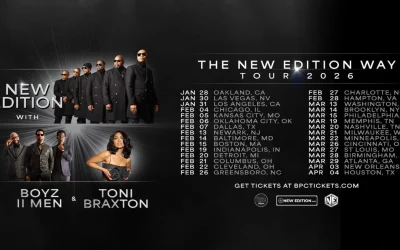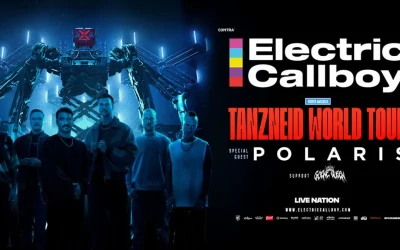A Louisiana concert-goer has filed a proposed class-action lawsuit accusing Ticketmaster, SeatGeek and Vivid Seats of steering customers into Ticketmaster’s proprietary system—even when they bought their seats somewhere else—and then refusing refunds when transfers failed.
Filed June 30 in U.S. District Court for the Eastern District of Louisiana, the 11-page complaint says plaintiff Stephen P. Smith was twice redirected to Ticketmaster after purchasing Jason Aldean tickets through SeatGeek and Vivid Seats. According to the suit, Smith cancelled the first order because he “has a long-standing distaste for Ticketmaster,” but when he tried again through Vivid Seats the tickets never arrived, his e-mail was flagged by Ticketmaster, and Vivid Seats refused to return his $806.
Smith alleges the three companies operate “a policy of funneling customers to and through Ticketmaster” without notice, locking the tickets inside Ticketmaster’s “walled garden” and forcing fans to do business with a platform they did not choose. The complaint brings claims for breach of contract, negligence and unjust enrichment on behalf of a nationwide class of consumers and seeks refunds, damages and injunctive relief.
How the “lock-in” works
At issue is Ticketmaster’s requirement that barcodes be delivered or re-sold only inside its own ecosystem—technology the company markets as SafeTix. Similar products exist from other primary ticketing company – including SeatGeek and AXS – that serve to force consumers to interact with that ticketing system at all times, replacing traditional “hard” or print-at-home tickets with access through a mobile phone application.
The U.S. Department of Justice, which sued Live Nation-Ticketmaster for monopolization last year, has argued that SafeTix “makes it harder for fans to use rivals’ secondary ticketing platforms,” pushing them back to Ticketmaster to complete any transfer or resale.
FURTHER READING | Ticketmaster SafeTix Take Central Role in DOJ’s Monopoly Lawsuit |
Smith’s suit contends that SeatGeek and Vivid Seats fail to tell customers up front that their orders will ultimately run through Ticketmaster, calling the omission a violation of “a fundamental tenet of American capitalism” that consumers may choose whom they patronize.
Part of a wider antitrust spotlight
The lawsuit arrives as Live Nation and its ticketing subsidiary already face intense government scrutiny. In May 2024 the Justice Department, joined by 30 state attorneys general, filed an antitrust complaint accusing the company of monopolizing the live-events industry through exclusive venue deals, retaliatory tactics and restrictions on ticket transfer.
Regulators and industry critics have zeroed in on Ticketmaster’s control over both primary and secondary marketplaces, arguing that mandatory in-app transfers and resale caps harm competition and inflate prices.
Consumer frustration mounting
Ticket lock-ins have sparked thousands of consumer complaints. The Better Business Bureau lists nearly 1,900 complaints against Vivid Seats alone over the past three years, many describing failed deliveries tied to Ticketmaster transfers.
Smith’s filing echoes those stories: when his tickets could not be moved to his Ticketmaster account, Vivid Seats allegedly told him to resell them—incurring additional fees—with “no guarantee” of recovering the purchase price.
It should be noted that resale marketplaces such as Vivid Seats (and in this context, SeatGeek) have no control over the format of tickets that are listed for resale on their platforms. If a ticket is locked to a specific app by the primary box office – as in this case – the seller listing them for resale on that platform can only deliver the tickets through that locked system – whether or not they, the platform, or the buyer have any desire to use that third party.
What’s next
The defendants have not yet responded in court, and TicketNews’ requests for comment were not immediately returned Wednesday. If certified, the class could encompass thousands of consumers who bought through SeatGeek or Vivid Seats and were subsequently required to use Ticketmaster.
At its core, the case could test how far platforms may go in tying ticket delivery to their own systems—an issue now firmly in the crosshairs of federal antitrust enforcers and state regulators. For concert fans like Smith, the outcome may decide whether buying through an ostensibly independent marketplace still means, in the end, doing business with Ticketmaster.
The full complaint text is available below:



